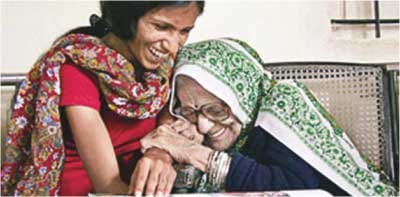Dementia set to triple by 2050, but still largely ignored

PHOTO: WHO
Worldwide, nearly 35.6 million people live with dementia — the loss of ability to memorise things or to process thought. This number is expected to double by 2030 and more than triple by 2050. Dementia affects people in all countries, with more than half (58 percent) living in low- and middle-income countries like Bangladesh. By 2050, this is likely to rise to more than 70%.
Although dementia cases are rising rapidly and impinges huge economic burden (costs the world more than US$ 604 billion per year), it is still largely ignored in most places in the world.
Bangladesh, where a large number of dementia cases are expected to be found has no national programme in place to address dementia. Experts urged to implement programmes focused on improving early diagnosis; raising public awareness about the disease and reducing stigma and providing better care and more support to caregivers.
Dementia is a syndrome that can be caused by a number of brain disorders that affect memory, thinking, behaviour and the ability to perform everyday activities. Alzheimer's disease is the most common cause of dementia and possibly contributes to up to 70% of cases.
Lack of diagnosis is a major problem. Even in high-income countries, only one fifth to one half of cases of dementia are routinely recognised. When a diagnosis is made, it often comes at a relatively late stage of the disease.
Experts from World Health Organisation (WHO) urged to increase the capacity to detect dementia early and to provide the necessary health and social care. Recent report from WHO pointed that a general lack of information and understanding about dementia fuels stigma, which in turn contributes to the social isolation of both the person with dementia and their caregivers, and can lead to delays in seeking diagnosis, health assistance and social support.
To strengthen care, experts recommend involving existing caregivers in designing programmes to provide better support for people with dementia and those looking after them. Community-based services can provide valuable support to families caring for people with dementia in both high- and low-income countries - delaying the need for people to enter into high-cost residential care. At the same time, health workforce training needs to pay closer attention to dementia and the skills required to provide both clinical and long-term care.

 For all latest news, follow The Daily Star's Google News channel.
For all latest news, follow The Daily Star's Google News channel. 



Comments